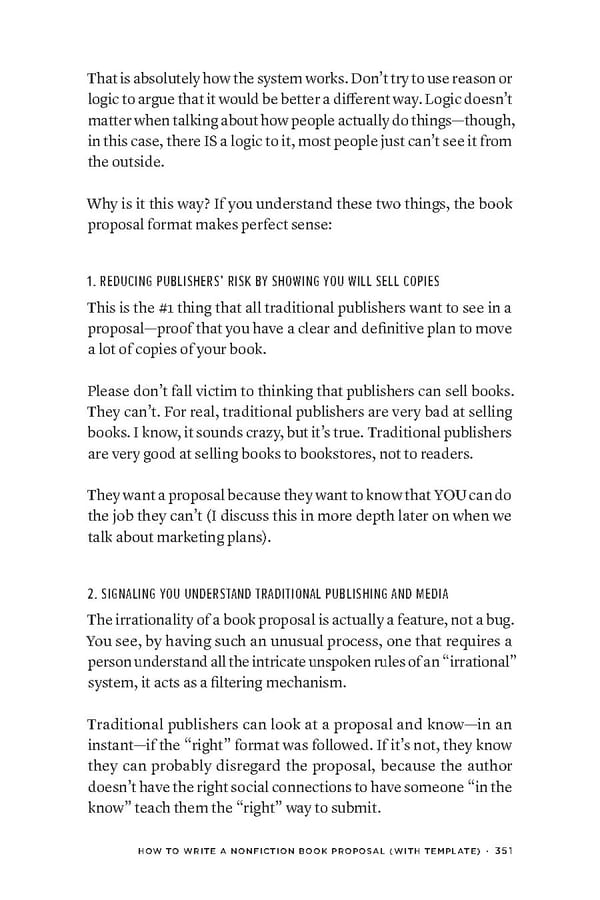That is absolutely how the system works. Don’t try to use reason or logic to argue that it would be better a different way. Logic doesn’t matter when talking about how people actually do things—though, in this case, there IS a logic to it, most people just can’t see it from the outside. Why is it this way? If you understand these two things, the book proposal format makes perfect sense: 1. REDUCING PUBLISHERS’ RISK BY SHOWING YOU WILL SELL COPIES This is the #1 thing that all traditional publishers want to see in a proposal—proof that you have a clear and definitive plan to move a lot of copies of your book. Please don’t fall victim to thinking that publishers can sell books. They can’t. For real, traditional publishers are very bad at selling books. I know, it sounds crazy, but it’s true. Traditional publishers are very good at selling books to bookstores, not to readers. They want a proposal because they want to know that YOU can do the job they can’t (I discuss this in more depth later on when we talk about marketing plans). 2. SIGNALING YOU UNDERSTAND TRADITIONAL PUBLISHING AND MEDIA The irrationality of a book proposal is actually a feature, not a bug. You see, by having such an unusual process, one that requires a person understand all the intricate unspoken rules of an “irrational” system, it acts as a filtering mechanism. Traditional publishers can look at a proposal and know—in an instant—if the “right” format was followed. If it’s not, they know they can probably disregard the proposal, because the author doesn’t have the right social connections to have someone “in the know” teach them the “right” way to submit. hOW TO WriTE A NONfiCTiON BOOk PrOPOSAl (WiTh TEMPlATE) · 351
 The Scribe Method by Tucker Max Page 350 Page 352
The Scribe Method by Tucker Max Page 350 Page 352